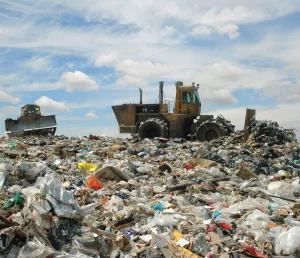Introduction
Waste management has long been a pressing issue for communities all over the world, as the rapid pace of modernization and industrialization leads to a growing volume of waste that is generated every day. The impact of waste overload is far-reaching, including environmental degradation, public health risks, and economic losses. To address these challenges, innovative solutions are needed, and artificial intelligence (AI) is emerging as a promising tool to tackle waste overload.
In this blog post, we will delve into the ways AI is being used in waste management and its potential to revolutionize the industry. We will explore the applications of AI in waste sorting, recycling, and waste-to-energy processes, as well as its impact on reducing waste, improving sustainability, and optimizing operations.

The Benefits of AI in Waste Management
The integration of AI in waste management offers a range of benefits, including:
- Improved Waste Sorting: AI-powered waste sorting systems are capable of accurately identifying and separating different types of waste materials, reducing contamination and improving the efficiency of recycling processes.
- Increased Recycling Rates: AI algorithms can help to optimize recycling processes, reducing the amount of waste sent to landfills and increasing the rate of recycling.
- Optimized Waste-to-Energy Processes: AI-powered waste-to-energy plants can monitor and optimize energy generation processes, reducing waste and increasing energy efficiency.
- Better Resource Management: AI can help to identify areas where waste is being generated and find ways to reduce it, as well as help to manage waste more effectively by analyzing patterns and trends in waste generation.
- Better Decision-Making: AI can analyze large amounts of data and provide actionable insights to waste management organizations, allowing them to make informed decisions and optimize their operations.
Applications of AI in Waste Management
1. Waste Sorting
One of the most promising applications of AI in waste management is waste sorting. AI-powered waste sorting systems use advanced algorithms to accurately identify different types of waste, including paper, plastics, metals, and organic waste. This information is then used to optimize the recycling process and reduce contamination.
2. Recycling Process Optimization
AI algorithms can be used to analyze the performance of recycling processes and identify areas for improvement. For example, AI can be used to monitor the quality of recycled materials and adjust the sorting process accordingly. This can result in higher-quality recycled materials and reduced waste.
3. Waste-to-Energy
AI can also be used in waste-to-energy plants to monitor and optimize energy generation processes. For example, AI algorithms can be used to predict energy generation rates, analyze performance data, and optimize energy production processes.
4. Waste Management Planning
AI can also be used in waste management planning, helping to identify areas where waste is being generated and find ways to reduce it. For example, AI algorithms can be used to analyze patterns and trends in waste generation, helping to optimize waste collection and management processes.
Conclusion
AI has the potential to revolutionize the waste management industry, providing innovative solutions to tackle waste overload and improve sustainability. From improved waste sorting and increased recycling rates to optimized waste-to-energy processes and better resource management, the applications of AI in waste management are vast and far-reaching. As the use of AI in waste management continues to grow, we can expect to see further improvements in sustainability, efficiency, and the management of waste.
References
- “The use of artificial intelligence in waste management: A review.” by M. H. Ali, H. G. B. Attia, K. M. Zaidan, and B. A. Al-Rashdan. Journal of Cleaner Production, vol. 255, 1 February 2020, pp. 120105.
- “Artificial Intelligence in Waste Management: Opportunities and Challenges.” by P. Bo, B. Liu, and W. Lu. Renewable and Sustainable Energy Reviews, vol. 121, November 2019, pp. 1-14.
- “Waste Management: The Future is Here with Artificial Intelligence.” by T. Tang, Y. Zhang, and L. Li. Journal of Environmental Management, vol. 256, 15 December 2020, pp. 111090.
